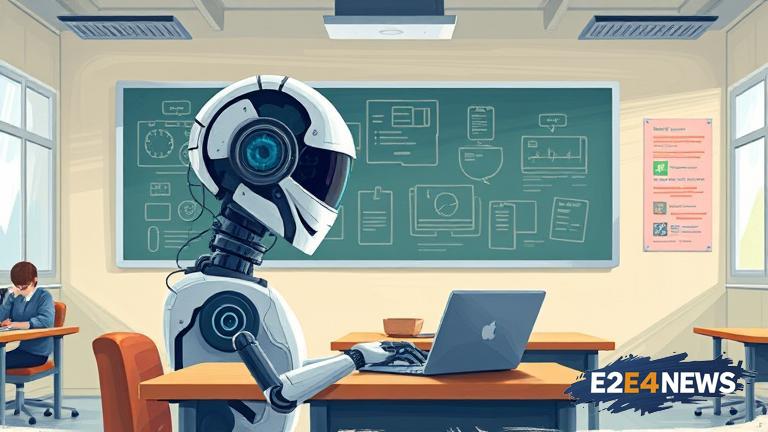The integration of artificial intelligence (AI) in the classroom is a rapidly growing trend in the education sector. AI-powered tools are being used to personalize learning, automate grading, and provide real-time feedback to students. This technology has the potential to revolutionize the way teachers teach and students learn. AI can help identify knowledge gaps and provide targeted interventions to support students who are struggling. Additionally, AI-powered chatbots can assist teachers with administrative tasks, freeing up more time for instruction and student support. Many schools are already using AI-powered tools to enhance student learning outcomes. For example, AI-powered adaptive learning systems can adjust the difficulty level of course materials based on a student’s performance. This ensures that students are challenged but not overwhelmed. AI can also help teachers develop more effective lesson plans and assessments. Furthermore, AI-powered virtual teaching assistants can help students with homework and provide additional support outside of the classroom. The use of AI in education is not limited to traditional classroom settings. Online learning platforms are also leveraging AI to provide more personalized and engaging learning experiences. AI-powered tools can help identify areas where students need extra support and provide targeted interventions. The integration of AI in education has the potential to improve student outcomes and increase teacher productivity. However, there are also concerns about the potential risks and challenges associated with the use of AI in the classroom. For example, there is a risk that AI could exacerbate existing inequalities in education if not all students have access to the same technology. Moreover, there is a need for more research on the effectiveness of AI in education and its potential impact on student learning outcomes. Despite these challenges, many educators and policymakers believe that AI has the potential to transform the education sector. The use of AI in education is a rapidly evolving field, and it will be important to continue monitoring its development and impact. As AI technology continues to improve, we can expect to see even more innovative applications in the classroom. The future of education is likely to be shaped by the integration of AI and other emerging technologies. The potential benefits of AI in education are numerous, and it is likely that we will see significant improvements in student learning outcomes and teacher productivity in the coming years. The integration of AI in education is a complex issue that requires careful consideration of the potential benefits and risks. It is essential to ensure that AI is used in a way that supports the needs of all students and promotes equity and inclusion in education. The use of AI in education has the potential to be a game-changer, but it is crucial to approach its integration in a thoughtful and responsible manner. By leveraging the potential of AI, educators can create more personalized, effective, and engaging learning experiences for students. The future of education is exciting, and the integration of AI is likely to play a major role in shaping its development. As the education sector continues to evolve, it is likely that we will see even more innovative applications of AI in the classroom. The potential of AI to improve student learning outcomes and teacher productivity is significant, and it is essential to continue exploring its potential in the years to come.
